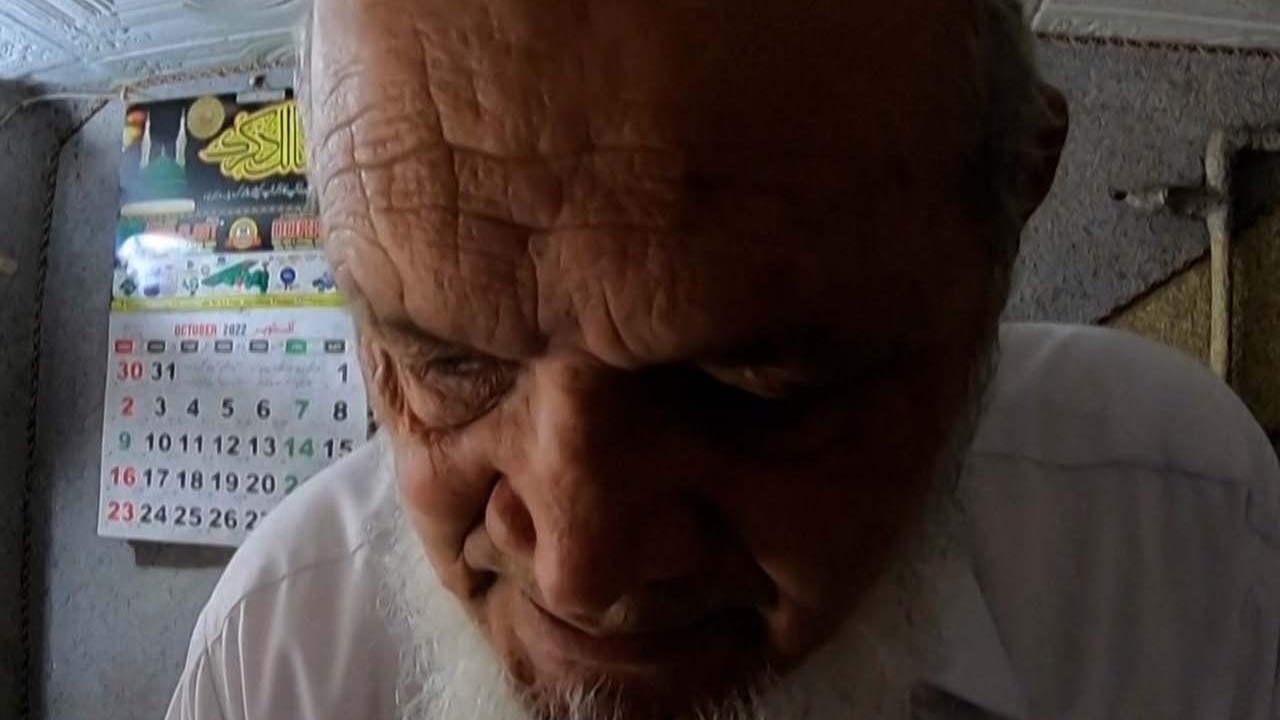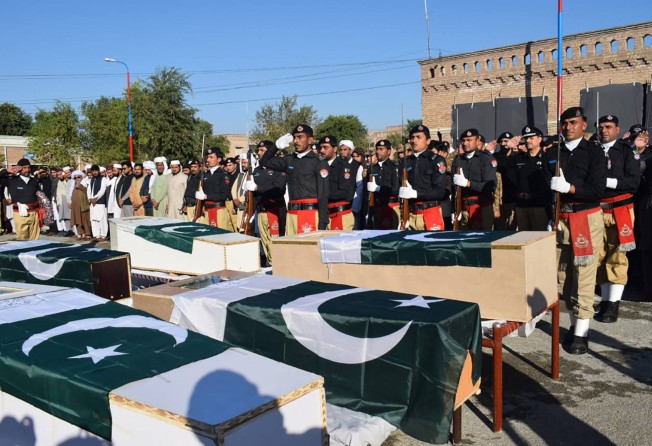
02:40
Wealthy residents and lawmakers in Pakistan threatened by Islamist group for ‘donations’

Pakistan is preparing a counterterrorism offensive amid an expected massive wave of violence after the country’s Taliban movement called off a shaky six-month ceasefire and ordered its militants to launch a nationwide campaign of attacks, analysts said.
If the ceasefire is not restored by last-minute diplomacy between Islamabad and the Afghan Taliban regime – which has mediated talks with the Tehrik-i-Taliban Pakistan (TTP) since seizing power in August 2020 – “the official end of the ceasefire will result in an uptick of violence in Pakistan”, said Abdul Basit, a research fellow at the S. Rajaratnam School of International Studies in Singapore.
The last counterterrorism effort was launched in 2014, when some 6,000 militants were forced to flee to neighbouring Afghanistan.
Pakistan’s state minister for foreign affairs Hina Rabbani Khar flew to the Afghan capital Kabul on Tuesday to pursue a broad agenda including “regional security”, a spokesman in Islamabad said.
Pakistani media, quoting anonymous sources, reported the minister would discuss a proposed plan for cooperation on counterterrorism between Kabul and Islamabad – including measures such as preventing TTP incursions into Pakistan.
But analysts do not expect the Taliban to oppose the TTP because they are long-standing allies.
Basit expected the TTP to adopt a “no holds barred approach” to carrying out terrorist attacks in Pakistan, necessitating the expensive military-led counterterrorism campaign – something Islamabad desperately sought to avoid by having the Afghan Taliban host negotiations which yielded the TTP ceasefire in June.
More than 70,000 people were killed and tens of billions of dollars of economic losses were sustained during Pakistan’s war against TTP insurgents and their al-Qaeda allies between 2007 and 2015.
Islamabad-based analyst Saifullah Mahsud said the TTP would seek to back up their ceasefire cancellation by carrying out attacks over as wide a geographical area of Pakistan as possible.
Mahsud believes most of the violence is expected to take place in the tribal districts of northwest Khyber Pakhtunkhwa province which border Afghanistan.
But the TTP would also “want to make a statement”, Mahsud said, by carrying out a high profile attack either against an army installation or a crowded public venue in the northwest city of Peshawar or the capital Islamabad.
Popular political leaders would also be in the TTP’s cross hairs, he said.

Sensing trouble, most of the population of the tribal district of South Waziristan – expected to be a focal point of Pakistan’s anticipated counterterrorism campaign – have completed seasonal migrations to their winter homes in adjacent areas earlier than usual, he said.
“Internal displacement is well under way. Given how the situation is developing there, well-to-do families have gradually moved out,” said Mahsud, who is president of the Fata Research Centre, a think tank focused on the restive tribal districts of Khyber Pakhtunkhwa.
During the ceasefire, the TTP dispatched about 1,000 militants to their home districts, but instead of rejoining their tribes and settling down as Pakistani negotiators had hoped, they sought to reassert their power in former strongholds in Khyber Pakhtunkhwa and reactivate sleeper cells in other parts of the country.
Since August, the TTP has carried out practically daily attacks against Pakistani security forces and police seeking to intercept them.
By timing the end of the ceasefire on Monday, analysts said the TTP was trying to exploit the political instability prevalent in Pakistan since former prime minister Imran Khan’s government was sacked in a parliamentary no confidence vote in April.
After ending a two-month long protest march on Saturday which failed to pressure the government into calling a snap election, Khan said he would try to force the administrations in two of Pakistan’s four provinces which his PTI party controls – including Khyber Pakhtunkhwa – to dissolve their assemblies.
Singapore-based analyst Basit said the TTP was also looking to pressure the new chief of staff of Pakistan’s powerful army, General Asim Munir, to retain its policy of seeking a negotiated solution with insurgents, rather than fighting them.
“One needs to see how quickly a government which is struggling to govern, and a military which is transitioning, will deal with the situation,” Basit said.
Islamabad’s problems are “further compounded” by its deteriorating ties with the Afghan Taliban regime over its refusal to restrict the TTP as “Pakistan had expected” after enabling its victory in the Afghanistan war, he said.
“There needs to be greater clarity on where the Pakistan army’s policy on counterterrorism stands because they initiated the peace talks which have now collapsed,” Basit said.
Despite being declared a major non-Nato ally of the United States for helping fight al-Qaeda after the September 2001 terrorist attacks, Pakistan provided safe havens to Taliban troops fighting Nato forces which occupied Afghanistan until August 2020.
Islamabad believed the Taliban, which it had supported before the 9/11 attacks, would eventually reclaim power.
Its support for the Taliban was further motivated by the West’s propping up of an Afghan government comprising politicians allied with India, Pakistan’s enemy and eastern neighbour.